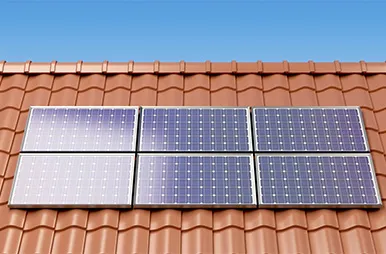10kw single phase hybrid inverter
Understanding the 10 kW Single Phase Hybrid Inverter
The transition towards renewable energy is gaining momentum worldwide, with solar power taking the lead as one of the most accessible and sustainable energy sources. A critical component in harnessing solar energy is the inverter, and among them, the 10 kW single phase hybrid inverter has emerged as a popular choice for residential and small commercial applications. This article delves into the functionality, advantages, and considerations of installing a 10 kW single phase hybrid inverter.
What is a Hybrid Inverter?
A hybrid inverter is a versatile device that combines two functions it converts the direct current (DC) generated by solar panels into alternating current (AC) for household use and manages the energy storage from batteries. This allows homeowners not only to utilize solar energy effectively but also to store excess energy for later use, ensuring a steady power supply even when solar production is low.
Key Features of a 10 kW Single Phase Hybrid Inverter
1. Power Output With a capacity of 10 kW, this inverter can manage the energy demand of most residential households and smaller businesses. It is suitable for medium-sized solar panel arrays, typically ranging from 25 to 30 panels.
2. Grid-Tied and Off-Grid Capabilities Unlike traditional inverters that either connect to the grid or allow for off-grid power, hybrid inverters offer the flexibility to operate in both modes. This means that users can utilize solar energy directly from the grid, use battery-stored energy during power outages, or a combination of both.
3. Battery Integration One of the standout features of a hybrid inverter is its ability to integrate seamlessly with various battery storage systems. This flexibility allows users to choose batteries that best fit their energy storage needs, enabling them to store excess solar energy and use it when demand peaks or during nighttime.
4. Smart Energy Management Many modern hybrid inverters come with advanced energy management systems, allowing users to monitor their energy consumption and generation in real-time. This feature can help optimize energy usage, reducing reliance on the grid and maximizing savings on electricity bills.
Advantages of a 10 kW Single Phase Hybrid Inverter
10kw single phase hybrid inverter

- Energy Independence With the ability to store energy, homeowners can achieve greater energy independence, reducing their reliance on grid electricity and minimizing vulnerability to price fluctuations
.- Cost-Effective While the upfront investment may be higher than a standard inverter, the long-term savings on electricity bills and potential incentives from energy efficiency programs can yield a fast return on investment.
- Environmental Impact Using solar energy significantly reduces carbon footprints, contributing to a more sustainable and environmentally friendly lifestyle.
- Resilience With the capability to store energy, hybrid inverters offer a reliable power source during outages. This aspect is particularly valuable in regions prone to frequent power interruptions.
Considerations Before Installation
Before opting for a 10 kW single phase hybrid inverter, it is essential to evaluate the energy needs of your household or business. Assessing your average daily energy consumption will help determine if this inverter's capacity is adequate. Additionally, consider the available space for solar panel installation, as well as the type and size of the battery storage system you may want to utilize.
Moreover, it is advisable to work with qualified solar energy professionals to ensure that the system is designed and installed correctly. They can provide valuable insights into local regulations, available incentives, and potential energy savings, simplifying the transition to solar energy.
Conclusion
A 10 kW single phase hybrid inverter represents a significant step towards sustainable energy solutions. By combining solar energy generation with battery storage capabilities, it offers a flexible, efficient, and environmentally friendly energy management option for residential and small commercial users. As renewable energy technology continues to evolve, hybrid inverters are likely to play a crucial role in shaping the future of energy consumption.
-
Unlocking Energy Freedom with the Off Grid Solar InverterNewsJun.06,2025
-
Unlock More Solar Power with a High-Efficiency Bifacial Solar PanelNewsJun.06,2025
-
Power Your Future with High-Efficiency Monocrystalline Solar PanelsNewsJun.06,2025
-
Next-Gen Solar Power Starts with Micro Solar InvertersNewsJun.06,2025
-
Harnessing Peak Efficiency with the On Grid Solar InverterNewsJun.06,2025
-
Discover Unmatched Efficiency with the Latest String Solar InverterNewsJun.06,2025







